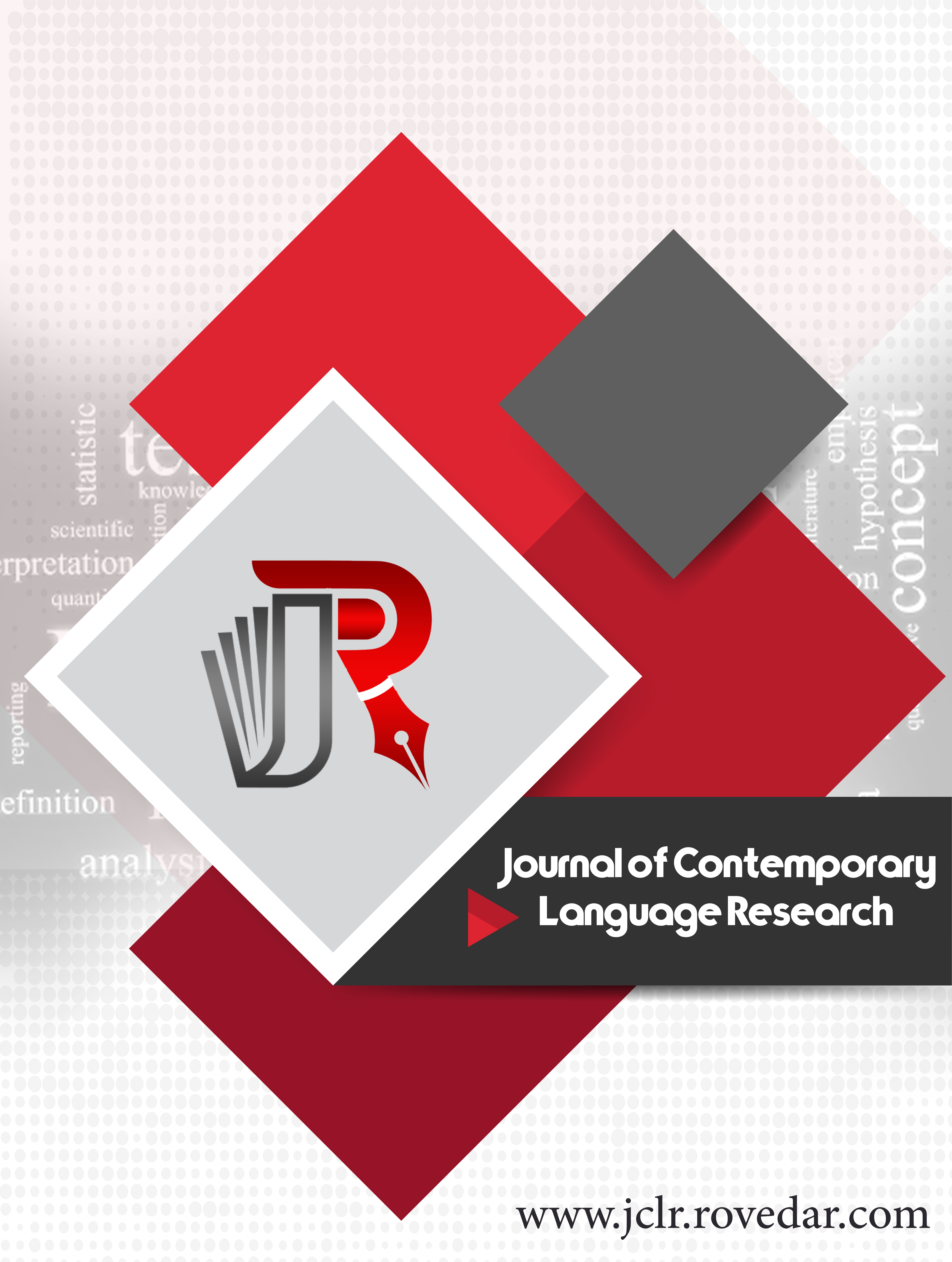Attitude System Realization of News Texts in Light of Appraisal Theory
Main Article Content
Abstract
Introduction: Journalistic texts, as a common source of knowledge, are meant to be realistic and emotionless. However, the ideologies and emotions of journalists can be traced while representing the same event in various ways using different media. Accordingly, the present study aimed to clarify the evaluative realizations of the news texts using the Appraisal Model. The present study also scrutinized the occurrence of the appraisal sub-categories throughout the text using the sentence as a unit of analysis.
Methodology: Having employed Systemic Functional Linguistics (SFL) and drawing on Appraisal Theory proposed by Martin and White (2005), this article examined three semantic regions of meaning, namely affect, judgment, and appreciation.
Results: By analyzing aspects of clause grammar relevant to the three dimensions of meanings, the article marked “judgment” as the highest frequent sub-system in the delivered speech, followed by the other two sub-systems of “affect” and “appreciation”. Moreover, results obtained from the analysis of the mentioned aspects corroborated the ideological orientations acting upon the speakers.
Conclusion: The interpretations of the delivered speech in this article construed the appraisal system as the path to achieving the interpersonal function of language in light of SFL.
Article Details

This work is licensed under a Creative Commons Attribution 4.0 International License.
References
Asher, N., Benamara, F., & Mathieu, Y.Y. (2009). Appraisal of opinion expressions in discourse. Lingvisticae Investigationes, 32 (2), 279-292. https://doi.org/10.1075/li.32.2.10ash
Bednarek, M. (2006). Evaluation in media discourse: Analysis of newspaper corpus. London and New York: Continuum. https://b2n.ir/t57731
Bell, A. (1991). The language of news media (pp. 84-85). Oxford: Blackwell.
https://www.worldcat.org/title/language-of-news-media/oclc/8246
Bhatia, V.K. (1994). Analyzing genre: Language use in professional settings (1st ed.). Routledge.
Chou, W., & Zhang, P. (2017) A Study of the function of identity construction in English common language from the perspective of adaptation theory. Journal of Tianjin Foreign Studies University, 24, 28-35.
Dai, X., & Zhou, J. (2019, July). Analysis of criminal court discourse on Steven Avery case from the perspective of appraisal theory. Fourth International Conference on Contemporary Education, Social
Sciences and Humanities (ICCESSH 2019), Moscow, Russia . https://doi.org/10.2991/iccessh-19.2019.411
Derewianka, B., & Jones, P. (2010). From traditional grammar to functional grammar: Bridging the divide. Research Online, 8(1), 4-17. https://ro.uow.edu.au/cgi/viewcontent.cgi?article=2000&context=sspapers
Ding, A. L. (2017). The analysis of attitudinal resources in Obama’s victory speech from perspective of appraisal theory. Higher Education of Social Science, 12(1), 37-44.
Halliday, M. A. (1994). An introduction to functional grammar (2nd edition). Arnold.
Huang, X. (2020). An analysis of the APEC news in Washington Post from the perspective of engagement system based on appraisal theory. Theory and Practice in Language Studies, 10(9), 1054-1059. http://doi.org/10.17507/tpls.1009.06
Jin, J. (2019). Political news discourse analysis based on an attitudinal perspective of the appraisal theory-taking the New York Times’ report China-DPRK relations as an example. Theory and Practice in Language Studies, 9(10), 1357-1361. http://doi.org/10.17507/tpls.0910.15
Koussouhon, L. A., & Dossoumou, A. M. (2015). Political and ideological commitments: A systemic functional linguistics and critical discourse analysis of president Buhari’s inaugural speech. International
Journal of Linguistics and Communication, 3(2), 24-34. http://doi.org/10.15640/ijlc.v3n2a3
Lian, Y. (2018). Analysis of Xi’s diplomatic speeches from the perspective of appraisal theory Journal of Language Teaching and Research, 9(4), 759-764. http://doi.org/10.17507/jltr.0904.12
Martin, J. (2000). Beyond exchange: Appraisal system in English. In S. Hunston and G. Thompson (eds), Evaluation in text (pp.142-175). Oxford University Press.
Martin, J. R., & White, P. R. R. (2005). The language of evaluation: Appraisal in English. Palgrave Macmillan. https://doi.org/10.1057/9780230511910
Martin, J. R., & Rose, D. (2007). Working with discourse: Meaning beyond the clause. Bloomsbury Publishing.
Miller, K. (2005). Communicating theories: Perspectives, processes
and contexts. McGraw-Hill.
Pekrun, R. (2014). Emotions and learning. The International Academy of Education. France: Gonnet Imprimeur. http://www.iaoed.org/downloads/edu-practices_24_eng.pdf
Song, W. (2019). An adaptation-based study on attitude resources in political discourse. Open Journal of Social Sciences, 7(7), 288-296. https://doi.org/10.4236/jss.2019.77025
Thompson, G. (2014). Introducing functional grammar (3rd ed). Routledge. https://doi.org/10.4324/9780203785270
Triyanto, S. (2018). The manifestation of ideology in language: A systemic functional linguistics approach to Obama’s speech. English
Language & Literature Journal, 7(1), 46-55. https://journal.student.uny.ac.id/index.php/quill/article/download/14450/14027
Tyng, C. M., Amin, H. U., Saad, M. N. M., & Malik, A. S. (2017). The influences of emotion on learning and memory. Frontiers in Psychology, 8, 1454. https://doi.org/10.3389/fpsyg.2017.01454
Ward, S.J.A. (2009). The handbook of journalism studies. In K. Wahl-Jorgensen & T. Hanitzsch (Eds.), Hand book series (pp.295-330). Routledge. http://keralamediaacademy.org/wp-content/uploads/
/02/Handbook-of-Journalism-Studies.pdf
Wodak, R. (2011). The discourse of politics in Action: Politics as usual. Palgrave Macmillan. https://doi.org/10.1057/9780230316539
Zhang, S., & Pei, Z. (2018, October). Analysis of political language based on appraisal theory: The mutual construction of language and power-taking Xi Jinping and Donald Trump’s speeches at world economic forum as examples. Proceeding of the 2018 International Conference on Social Science and Education Reform (ICSSER 2018), 248, 98-101. Atlantis Press. https://doi.org/10.2991/icsser-18.2018.23

